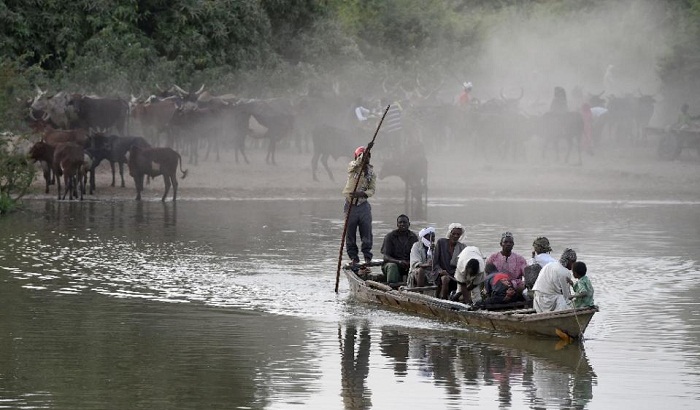Besides fleeing the drought, many people are crossing international borders to flee the Islamist militant group Boko Haram.
The presidents of Lake Chad basin countries Cameroon, Chad, Niger and Nigeria called for international support for a project to replenish the lake`s waters and offer people greater security.
Lake Chad is "dying", Niger`s President Mahamadou Issoufou told leaders on the opening day of a 195-nation UN conference in Paris that aims to rein in emissions of heat-trapping gases and avoid a climate disaster.
Chad`s President Idriss Deby said the lake`s surface had shrunk from 25,000 square kilometres (10,000 square miles) in 1960 to just 2,500 sq. km (1,000 sq. miles) today.
"As well as drying up, it has become a base for Boko Haram terrorists," he warned.
Without security or resources, inhabitants may be tempted to cross the Sahara and the Mediterranean to reach Europe, said Nigerian President Muhammadu Buhari.
Buhari pressed the international community to support a project to divert one or two rivers to the lake.
The United Nations has called for world powers to help Lake Chad basin countries tackle the effects of climate change and end the militant scourge.
Vast expanses of the lake have dried up and deprived people of their livelihoods of fishing, livestock farming and trade, Toby Lanzer, the UN regional humanitarian coordinator for the Sahel, told AFP this month.
Britain, France and the United States already work with the four regional countries to tackle the instability caused by Boko Haram.
But there are growing concerns the unrest could spread due to potential links between Boko Haram and like-minded extremists in places such as Libya and Mali, Lanzer said.
More about:
















































